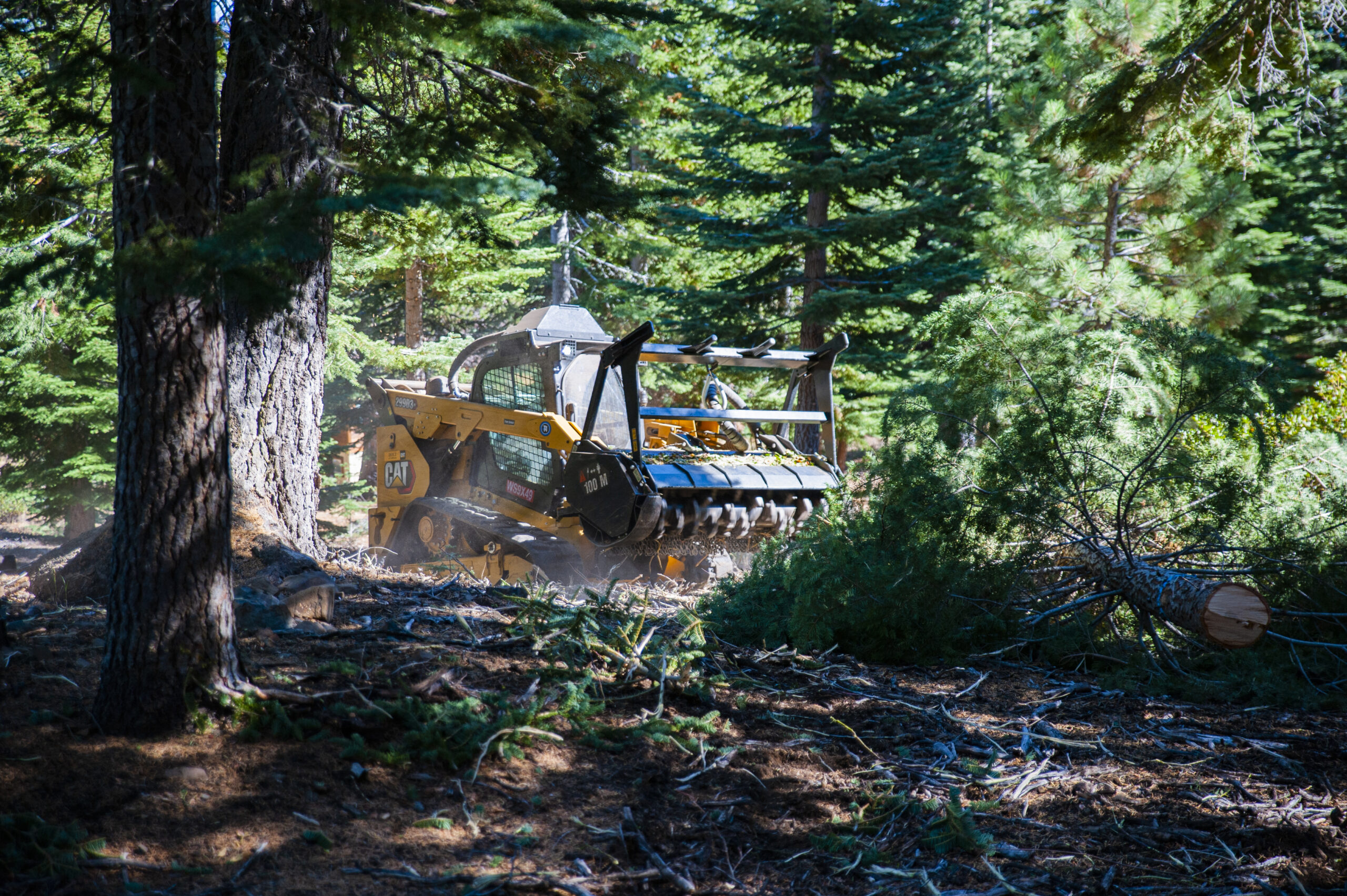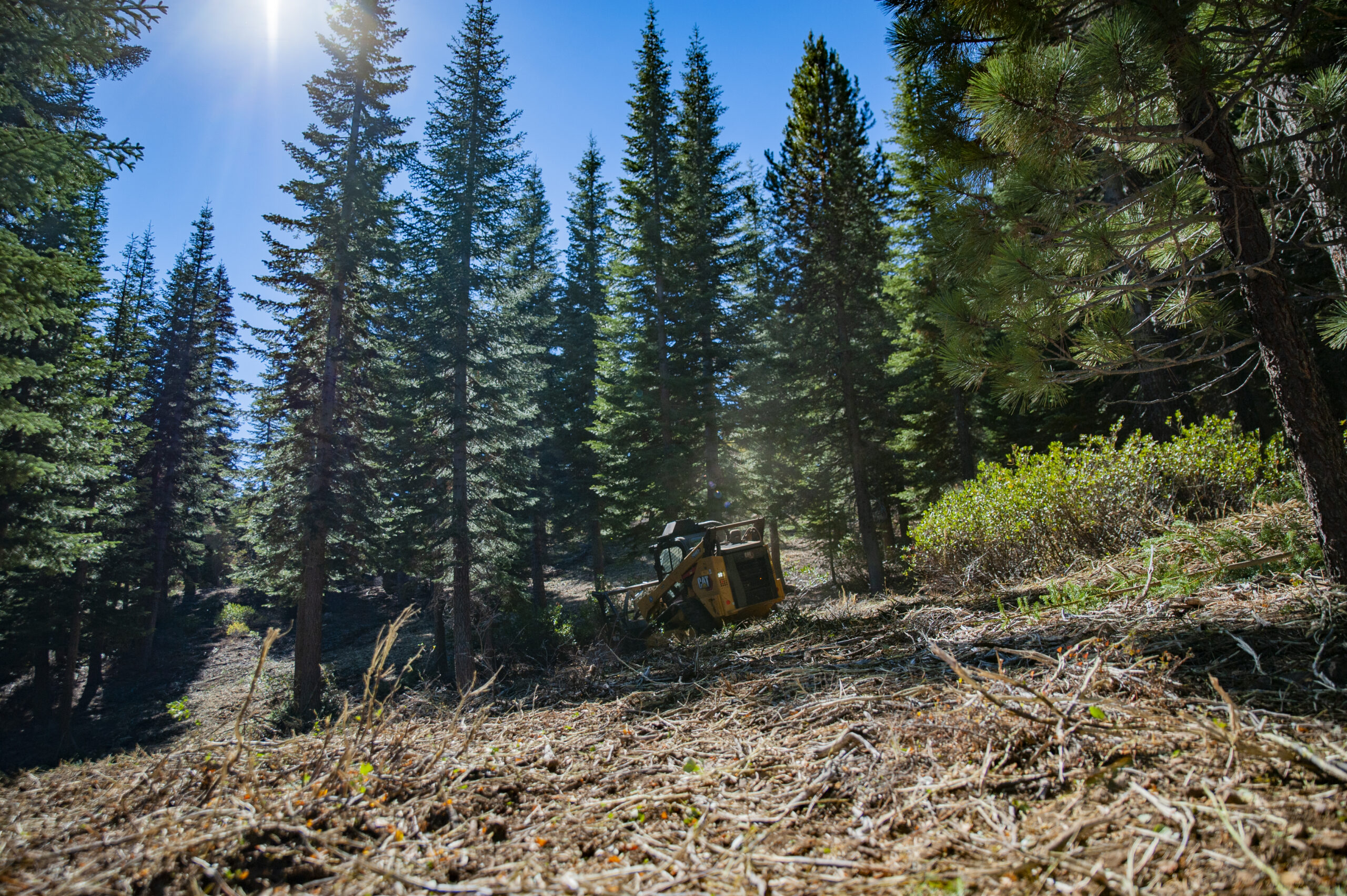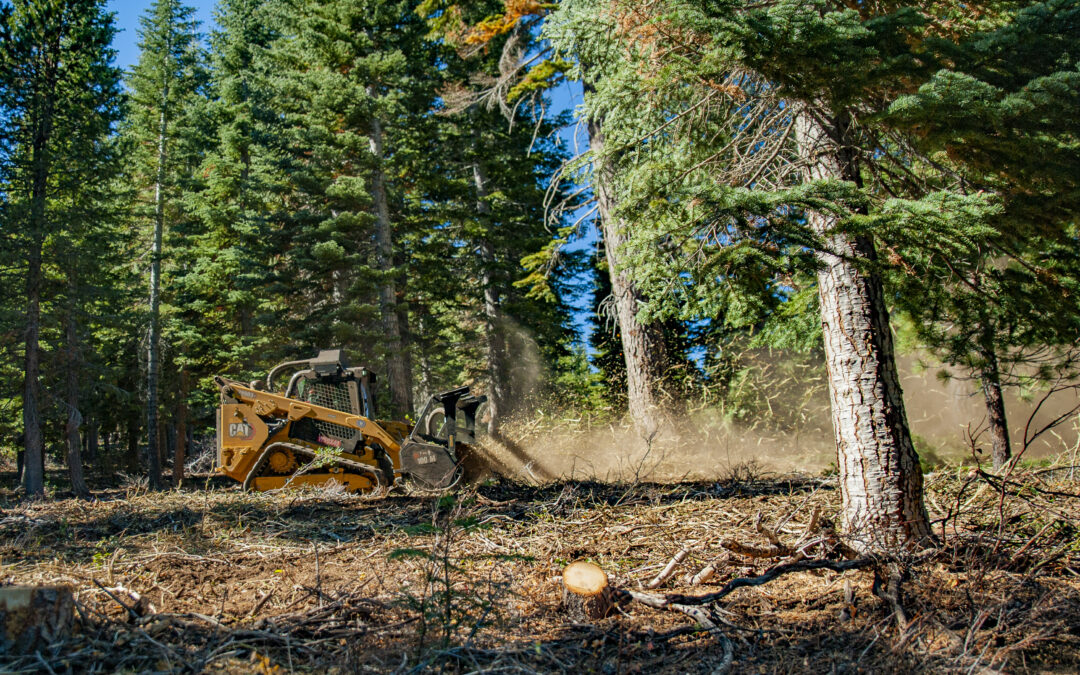Why Forest Mastication Is Important
As we mentioned in our What Is Defensible Space? article, combustible vegetation that can fuel wildfire needs to be cleared or reduced. Forest fuel is one of the primary factors for why wildfires become catastrophic. In this article we’d like to explain what mastication is and why it is an important tool to reduce the severity of wildfires.
Mastication is a fuel reduction treatment method used in forestry management to reduce wildfire risk and reduce fuel loadings by returning the forest to natural conditions. Masticating fuels, or mulching the forest, involves the reduction of vegetation into small chunks and is one of the many ways overstocked forest fuels are thinned.
To begin let’s identify the three types of biomass in the forest that fuels a wildfire.
- Fine Fuels – typically needles, dry grasses, twigs, larger branches and logs on the forest floor
- Crown Fuels – typically found in tree canopies
- Ladder Fuels – are arranged vertically like brush, bushes and small trees
Removing these fuels through mastication is important because it reduces the threat of wildfires growing to catastrophic measures and, if wildfire were to occur, mastication will GREATLY reduce the severity of a wildfire.

Forest Mastication: How Its Done & What Machinery Is Needed
The main steps of creating good defensible space are pine needle raking, altering brush placement, reducing vertical fuels, and maintaining a barrier between a structure and an advancing fire.
However, forest mastication is much more robust and must be done using special mechanical tools called mulchers (pictured above) with recirculating blades, or brushcutters. The main purpose of this mechanical device is to reduce the need for prescribed burning. Specialized mastication equipment can clear large areas of brush much faster and more economically than performing this same work by hand.

The Benefits of Forest Mastication
The main benefits of forest mastication are:
- Wildfire reduction
- Improvement of forest health
- Improvement of wildlife habitats in high fire risk environments
By removing shrubs or trees that overcrowd the forest the remaining trees will no longer compete for soil nutrients, and healthy ground plants will have more direct access to sunlight. Mastication also leaves the soil intact while pulling up the roots of fire fuels. Additionally, forest mastication aids in the creation of fire-safe communities by greatly reducing the chances that wildfires will become catastrophic or life-threatening.
When is mastication necessary?
We recommend masticating in forest areas that are overcrowded, have no clear land space to walk through, or where tree density is considerably unsafe. Mechanical mastication is a great way to economically clear large areas of continuous brush, bushes and small trees.
HIRE A MASTICATION PROFESSIONAL TODAY!
Elements can help you with any forest mastication or defensible space needs.

